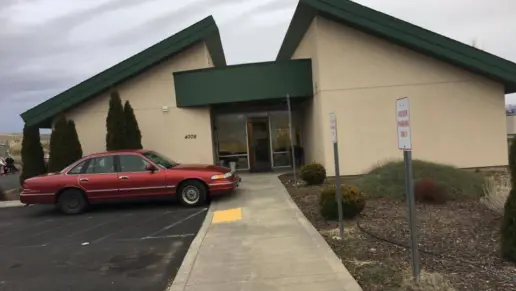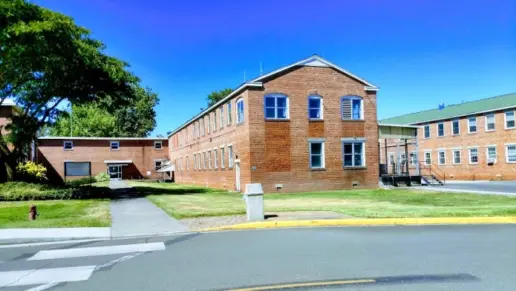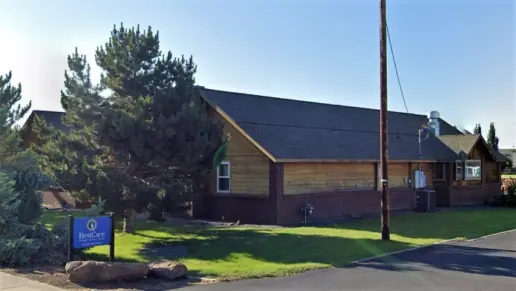About Salem Comprehensive Treatment Center
Salem Comprehensive Treatment Center is an opioid addiction recovery facility in metropolitan, urban Salem, Oregon. Service is available to clients who are 18 years or older and of any gender. It’s part of the CTC national network, which provides clinical care and medications in professional modern settings. Their clinic in the state’s capital is no exception.
The main treatment provided at this facility is medication assisted treatment (MAT). One thing that sets them apart from other methadone clinics is that they offer multiple medication options to choose from. The medications and dosages are based on what the staff determines is appropriate for the client after a pre-admission examination. The options they have available to help are buprenorphine, naltrexone, methadone and Suboxone.
The medications used for treatment are designed to help reduce withdrawal symptoms and opioid cravings. They differ in how they’re administered, with some of the medications being taken daily while others are injected into the patient once a month. Some clients may slowly taper off the medication after a few weeks, while others may need long term treatment for months or years. The staff members will guide patients in making these decisions. During counseling, patients will work with compassionate counselors trained in addiction recovery.
The use of these medications is combined with group and individual therapy sessions to give patients the chance of long term recovery. The two therapeutic approaches counselors that counselors will use to treat patients include dialectical (DBT) and cognitive behavioral therapy (CBT). CBT helps clients to identify negative beliefs that are contributing to their addiction. DBT focuses on improving a client’s ability to regulate their emotions and manage their stress so they don’t feel the need to use substances.
Rehab Score
Other Forms of Payment
Self-pay involves paying for treatment out of your own pocket. You can use savings or credit, get a personal loan, or receive help from family and friends to fund your treatment. If you don't have insurance or your insurance plan doesn't cover a specific program, self-pay can help ensure you still get the care you need.
Medicare is a federal program that provides health insurance for those 65 and older. It also serves people under 65 with chronic and disabling health challenges. To use Medicare for addiction treatment you need to find a program that accepts Medicare and is in network with your plan. Out of pocket costs and preauthorization requirements vary, so always check with your provider.
Military members, veterans, and eligible dependents have access to specific insurance programs that help them get the care they need. TRICARE and VA insurance can help you access low cost or no cost addiction and mental health treatment. Programs that accept military insurance often have targeted treatment focused on the unique challenges military members, veterans, and their families face.
Medicaid is a state based program that helps lower-income individuals and families pay for healthcare. Medicaid covers addiction treatment so those enrolled can use their coverage to pay for rehab. When a program accepts Medicaid the client often pays very little or nothing out of their own pocket.
Addiction Treatments
Levels of Care
Treatments
Opioid rehabs specialize in supporting those recovering from opioid addiction. They treat those suffering from addiction to illegal opioids like heroin, as well as prescription drugs like oxycodone. These centers typically combine both physical as well as mental and emotional support to help stop addiction. Physical support often includes medical detox and subsequent medical support (including medication), and mental support includes in-depth therapy to address the underlying causes of addiction.
Substance rehabs focus on helping individuals recover from substance abuse, including alcohol and drug addiction (both illegal and prescription drugs). They often include the opportunity to engage in both individual as well as group therapy.
Programs


Clinical Services
Group therapy is any therapeutic work that happens in a group (not one-on-one). There are a number of different group therapy modalities, including support groups, experiential therapy, psycho-education, and more. Group therapy involves treatment as well as processing interaction between group members.
In individual therapy, a patient meets one-on-one with a trained psychologist or counselor. Therapy is a pivotal part of effective substance abuse treatment, as it often covers root causes of addiction, including challenges faced by the patient in their social, family, and work/school life.
Amenities
-
Private Setting
Accreditations

The Substance Abuse and Mental Health Services Administration (SAMHSA) is a branch of the U.S. Department of Health and Human Services. Established in 1992 by congress, SAMHSA's mission is to reduce the impact of substance abuse and mental illness on American's communities.
SAMHSA Listed: Yes

The Commission on Accreditation of Rehabilitation Facilities (CARF) is a non-profit organization that specifically accredits rehab organizations. Founded in 1966, CARF's, mission is to help service providers like rehab facilities maintain high standards of care.
CARF Accreditation: Yes

The National Association of Addiction Treatment Providers (NAATP) is a professional association that represents organizations in the field of addiction services. Founded in 1978, NAATP's mission is to advance addiction services and ensure that high-quality addiction treatment is available and accessible.
NAATP Member: Yes
Contact Information
1160 Liberty St SE
Salem, OR 97302


